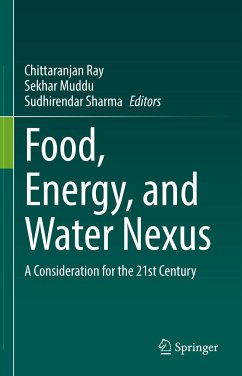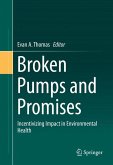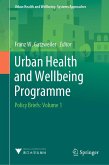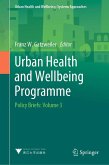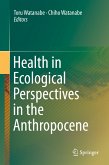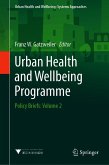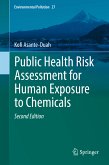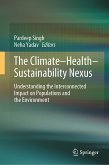¿Chittaranjan Ray, Ph.D. is the Director of Nebraska Water Center and Professor of Civil & Environmental Engineering at the University of Nebraska. Prior to this appointment, he was a professor in the Department of Civil & Environmental Engineering and Interim Director of the Water Resources Research Center at the University of Hawaii in Honolulu, Hawaii. He received his Ph.D. in Civil Engineering from the University of Illinois at Urbana-Champaign and M.S. in Civil Engineering from Texas Tech University. He served as a staff engineer with the consulting firm Geraghty & Miller, Inc. (now part of Arcadis Geraghty & Miller) in Hackensack, New Jersey between his two graduate degrees. Additionally, he was employed as a research associate and associate scientist at the Illinois State Water Survey in Champaign, Illinois. His research interests are in the areas of water and chemical movement in soil and ground water system, water for food production, riverbank filtration for water supply, and general water quality. He is a registered Professional Civil Engineer in Illinois and fellow of the American Society of Civil Engineers. He has published/edited nine books, over 100 peer-reviewed journal papers, many technical reports. He has made dozens of presentations in the areas of water quality, contaminant transport, and riverbank filtration. Sekhar Muddu, Ph.D. is a Professor with the Department of Civil Engineering, Indian Institute of Science, Bangalore, India. Currently, he is also adjunct professor at Nebraska Water Centre of the University of Nebraska Lincoln, USA. Additionally, he is the coordinator of the Indo-French Cell for Water Sciences at Indian Institute of Science. He received his Ph.D. degree from the Indian Institute of Science, Bangalore, India in the area of hydrology & water resources. His chief research interests are in the areas of groundwater systems, agro-hydrology and satellite hydrology. He has published over 100 peer-reviewed journal papers and several technical reports. His significant effort was pioneering installation of the Kabini Critical Zone Observatory in India for carrying out advances in multidisciplinary catchment hydrology science in tropical ecosystems of forested and agriculture dominated systems. Sudhirendar Sharma, Ph.D., formerly with the Water & Sanitation Program of the World Bank and currently a Senior Consultant with the World Bank, Dr Sudhirendar Sharma has been a committed student of water science, a keen observer on climate change dynamics, and a critic of the contemporary development processes. With a masters degree in soil chemistry from Himachal Agriculture University and a doctorate in environment science from Jawaharlal Nehru University, Sharma has had decades of experience working with non-governmental organizations, media outfits and multilateral institutions. Given his varied but inter-connected experiences, his research aptitude in the field of strategic planning, knowledge management and project evaluation have been availed by leading development institutions like the World Bank, DFID, EU, IDRC, IFAD, GIS and the like. He has published extensively in national and international journals and magazines. Over the years, Sharma has diversified himself as a quasi-academic researcher, a development analyst and a specialized consultant. For him, this is a form of 'evolving entrepreneurship' that helps him keep growing with changing times. Sharma is based in New Delhi.
1. Unfolding Food, Energy, and Water Nexus (Chittaranjan Ray, Sekhar Muddu, and Sudhirendar Sharma).- 2. Resilience of Working Agricultural Landscapes (Shana M. Sundstrom, Jennifer Hodbod, and Craig R. Allen).- 3. A Greenhouse Gas Emissions Inventory for Nebraska: Livestock and Coal Loom Large (Eric R. Holley and Adam J. Liska).- 4. Technologies for Enhancing Water Productivity in Irrigated Agriculture (Sarangi and M. Sekhar).- 5. Virtual Water and Embodied Energy Flows Out of Nebraska Related to Trade in Corn (Mesfin M. Mekonnen).- 6. State of Agriculture in Karnataka, India and a Case Study of Food, Energy and Water Nexus from the Kabini Observatory (Deepti B. Upadhyaya and Sekhar Muddu).- 7. Sensor-Based Monitoring of Soil and Crop Health for Enhancing Input Use Efficiency (Rabi N. Sahoo).- 8. Strategies to Improve Crop-Water Productivity (Vivek Sharma and Shiva Bhambota).- 9. Limited Irrigation for Managing Declining Water Resources in the US High Plains (Bijesh Maharjan, Gary W. Hergert, and Saurav Das).- 10. Understanding the Cultural Foundations of Water Institutions: Groundwater Management in Kansas, High Plains-Ogallala Aquifer (Rebekah Carnes and Matthew R. Sanderson).- 11. Nitrogen Management for Improving Water, Energy, and Food Security (Brian T. Krienke, Daran R. Rudnick, Tsz Him Lo, and Xin Qiao).- 12. Mobilization of Naturally Occurring Uranium in Groundwater Under Intensely Managed Farmland (Jeffrey P. Westrop, Daniel D. Snow, and Karrie A. Weber).- 13. Nanotechnology at the Juncture of Water, Food, and Energy Nexus: Boon or Bane? (Arindam Malakar and Jennifer A. Cooper).

